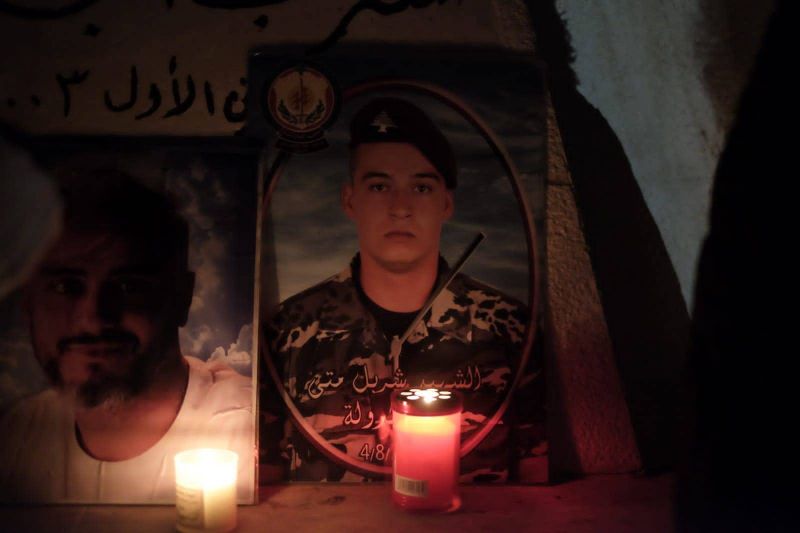
About 30 relatives of the victims gathered near the port of Beirut on Wednesday, under the Statue of the Emigrant. (Credit: João Sousa/L'Orient Today)
Gathered under the Statue of the Emigrant near the port of Beirut on Wednesday, approximately 30 relatives of the victims of the Aug. 4 blast threatened to take "severe measures" next week, while Lebanon's investigation into the tragedy remains stalled due to political interference.
"We will remain the only pressure against anyone who tries to disrupt the investigations ... We will take severe measures at the beginning of next week," promised the relatives of the victims in a joint statement made Wednesday.
"The situation is that the Aug. 4 blast investigation has been stalled for over a year now and we believe that a large part of the responsibility is in the judiciary body," said Paul Naggear, the father of Alexandra — one of the youngest victims of the blast — told L'Orient Today's photographer on site.
The protest is scheduled for the morning of Tuesday, Jan. 10 at the Palace of Justice.
"We feel terrible, we live with the pain. Alexandra’s passing is with us every day," added Naggear. "We won’t feel good until justice is served. There’s a large part of us that is dead."
More than two years after the tragedy, the investigation remains blocked by various political maneuvers. It is currently suspended due to complaints filed against acting Judge Tarek Bitar, including complaints filed by former ministers Ali Hassan Khalil and Ghazi Zeaiter, as well as Youssef Fenianos, all of whom are implicated in the investigation.
Despite their alleged involvement, Zeaiter and Khalil were re-elected to Parliament in May 2022. Caretaker Finance Minister Youssef Khalil, who is close to Parliament Speaker Nabih Berri, is also accused of obstructing the investigation by not signing judicial appointments that have been vacant for several months.
In early September, the Higher Judicial Council decided to appoint a substitute investigating judge, but some of the victims' families have insisted that Bitar is "the master of his case" and asserted that "with such a bold and impartial judge, the truth will not be lost."
The 2020 explosion killed more than 220 people, injured 6,50o others and destroyed entire neighborhoods in the Lebanese capital.
Reporting contributed by João Sousa.